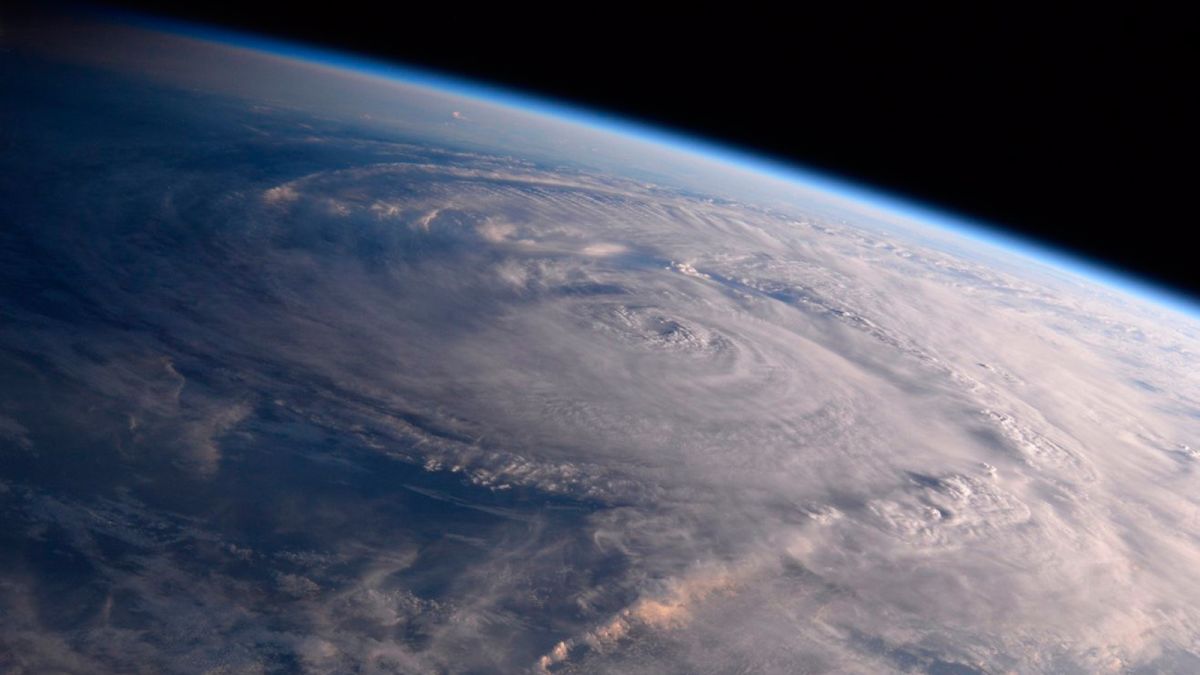
As the Bahamas and the eastern seaboard reel from Hurricane Dorian, concerned residents along the Gulf of Mexico coast are keeping their eyes on the tropics. Officials encouraged residents at the June 1 start of hurricane season to begin preparing for storms. And more recently, climate change and its effects on coastal erosion – a natural barrier to powerful storms – have made Gulf Coast residents feel more vulnerable to the destructive potential of hurricanes, a threat that has even over-ridden partisans views.
Current polling of residents in Gulf Coast states where Republicans dominate in office shows a majority of people believe the threat of climate change is real – and they increasingly expect their elected officials to address the threat.
“Part of the reason (for the poll) is to see where people were and communicate to those running for office that taking care of the coast is a critical component of being in office,” Steve Cochran, campaign director for Restore Mississippi River Delta, told Occupy.com.
The August poll, conducted by BDPC, LLC and Pinsona, questioned Louisiana residents on behalf of Restore. It found that 96 percent of residents believe addressing coastal erosion should be a priority and that funds should be directed to tackle the problem.
Notably, 71 percent of residents believe climate change is real, although the poll did not ask respondents whether they believed it was man made. This figure is on par with a 2018 Yale poll that found 71 percent of Houston's Harris County believe in climate change. That area saw massive flooding two years ago from Hurricane Harvey.
That states with Republican-dominated legislatures and congressional representatives would accept climate change science seems to counter recent Pew polls showing only about 27 percent of Republicans believe in climate change.
However, the same poll shows that two-thirds of people living within 25 miles of a coastline, and twice as many millennial Republicans than older generations, believe climate change is a threat that needs to be addressed.
Gulf Coast states such as Texas and Louisiana have long depended on the fossil fuel industry to drive their economies. Reflecting the changing demographics of Texas, which is growing younger and more Latino, a majority of Texas residents believe the fossil fuel industry bear responsibility for climate change and should pay a portion of the costs to repair damage caused by carbon emissions.
The polling data on beliefs about climate change parallels polling data that show a majority of Americans, including Republicans, want gun control legislation. Like legislation to combat climate change, gun control faces an uphill battle in state legislatures and Congress, where many Republican officials are heavily financed by deep pocket special interest groups that benefit from lack of any enforcement legislation.
“The scientific evidence doesn't support global warming. For the last 18 years, the satellite data – we have satellites that monitor the atmosphere,” Senator Ted Cruz of Texas has said. (Ninety-seven percent of the world’s scientists, including those using the same data as Cruz referred to, have concluded the scientific evidence shows the planet is warming.)
One hundred and fifty members of Congress – all Republicans – currently deny climate change is real, according to the liberal leaning Center for American Progress. While a minority overall, they play a greater role in the Senate where Republicans hold the majority and can control scheduling of bills.
One area of the climate debate that does enjoy bi-partisan support is the creation of natural and man-made barriers to hurricanes.
“These hurricane protection and coastal restoration funds are critical for the protection of families and businesses throughout Southeast Louisiana. We count on our coastline and flood protection systems to keep us safe from devastating natural disasters, and with these new federal funds, we will be able to strength ten our current flood protection systems and continue our efforts to protect our vanishing coastline,” Louisiana Congressman Steve Scalise, the Republicans' minority whip, said.
The dividing point is whether government should play a role in curbing carbon emissions. Restoring coastlines and building levees can prevent rising waters from flooding cities. But as Hurricane Katrina showed, if levees fail, cities will flood catastrophically. Natural barriers reduce storm surge and even structurally sound levees can’t stop water surging over 20 feet.
“Things we can do – rebuild flood protection [for example] – has strengthened New Orleans’ defenses, but we’ve lost tens of thousands of acreage of land, so we would take a bigger impact,” said Cochran.
Climate change has catalyzed the loss of coastal barriers and it’s not just affecting the Gulf of Mexico states. The Environmental Protection Agency found in its 2017 Climate Indicator Report that between 1996 and 2011, 20 miles of land along the Atlantic coast was converted to open water.
The Netherlands sits low and is constantly vulnerable to flooding, and the Dutch have confronted this existential threat by becoming the world leaders in dealing with rising sea levels. As The New York Times wrote, in Holland, “climate change is considered neither a hypothetical nor a drag on the economy.” The Dutch approach has been both to provide man-made protection but also to lobby the world to address climate change and reduce emissions. The U.S., up to this point, has not taken the same steps to address climate change and, without doing so, remains threatened by catastrophic storms to come.
“What we’re doing is buying time from sea-level rise,” said Cochran. “If we don’t address emissions, then ultimately we’ll lose that fight.”












